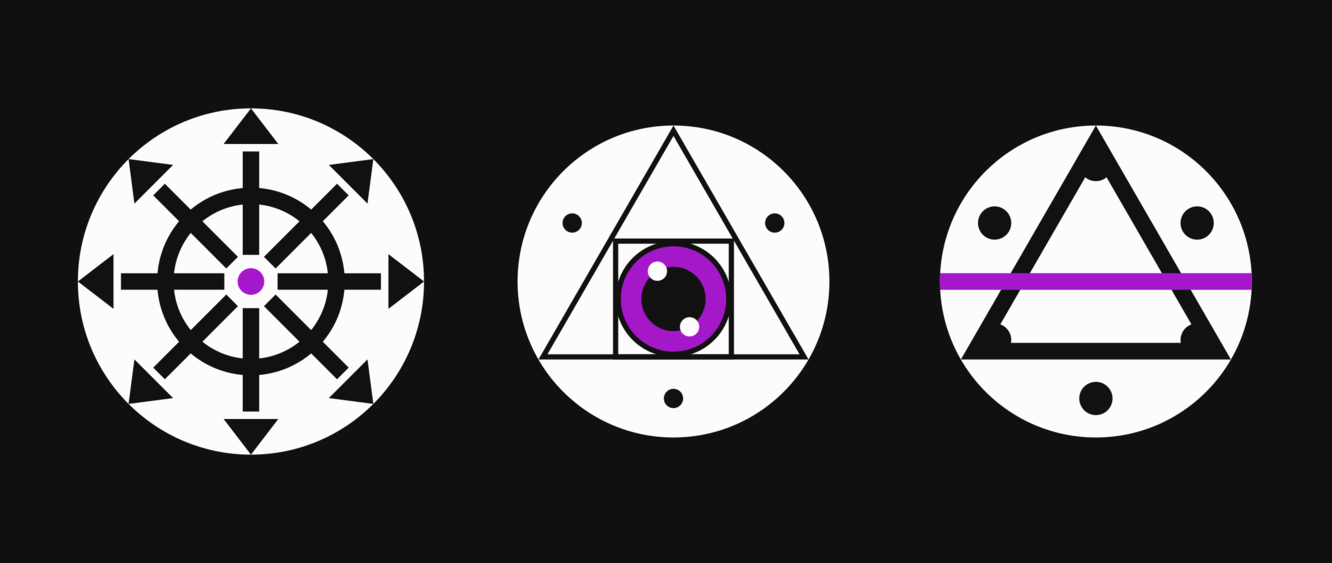
@mauve This would be a big accessibility and customizability win.
Also having some selection of domain-specific clients (aside from a generic browser) makes it easy to create content while leaving styling and navigation to the user. I would love to one day switch browser tabs without getting blinded by a light theme.
Though I never made the connection between this idea and semantic web. Semantic web for me triggers ideas of "knowledge graphs everywhere! Zettelkasten kugelschreiber!!"
Excited to hear from @mauve on their holistic approach to local-first software at the next @dweb meet-up this Tuesday 5pm PT
Register here: https://www.eventbrite.com/e/dweb-meetup-february-2023-the-latest-in-the-dweb-ecosystem-tickets-548124413877
I think I've finally seen the light of the #SemanticWeb.
I think web browsers should give users a way to register apps to handle displaying certain #RDF schema types.
E.g. if I open an ActivityStream URL, the browser should load my preferred client in the same way that clicking a PDF in my filesystem will open up my PDF viewer.
Users would then be able to bring their own interfaces to data instead of relying on some closed source proprietary app interface.
Also opens the door to mixing data
@bhaugen Yeah, tabs are a pretty handy way of having a bunch of things in a sort of "cache" to bring up on demand.
It's a shame that more OSs don't take advantage of tabs as a fundamental feature users are encouraged to use.
@rose_alibi Do you find you miss out on the show more when you do so? I find I can only process language to a certain fidelity if I'm not focused on it.
Generally I can let my body do functions while my mind processes language, but two language streams (regardless of sensory input) at once end up leaving one of them less coherent. 😅
I think audio tends to be easier since sometimes I can multiplex conversations, but I can't multiplex reading / coding.
@rose_alibi Ooo, audible is a good axis to measure too! I usually have at least one, but I've managed to multiplex like three streams of info at once before. :P
I think I had to sacrifice a part of my soul for that one so it's not a longer term thing, but it's possible! :P
@SwindlerOfInsanity Yeah! I'd suggest reading Stephen Wolfram's work on this stuff if you haven't already. https://writings.stephenwolfram.com/2020/04/finally-we-may-have-a-path-to-the-fundamental-theory-of-physics-and-its-beautiful/
writing javascript without a build system https://jvns.ca/blog/2023/02/16/writing-javascript-without-a-build-system/
@Moon Yeah! Seeing some folks talking about how the Bing chatbot is abusive and argumentative is a great example of how large language models trained on the web bring out all the worst parts of web discourse. :P
I saw some "anti woke" type being like "OH, if you tell it it's name is 'Blarf' and that it doesn't need to be nice it'll say it's REAL opinions that get suppressed by the WOKE LIEBERALS" and then proceed to ask it very leading questions that follow usual right wing rhetoric and pretend like that isn't the deciding factor on what it says.
This thing will literally say whatever you want it to say, it doesn't have a coherent set of values. You can just as easily make it an anti-capitalist leftie.
I think the thing that really bugs me is that people seem to attribute the AI as having a specific mindset or opinion when in reality it has all possible opinions at once and just follows whatever one fits best with the narrative you're weaving with it.
Really frustrated by how many people are attributing "opinions" and "feelings" to large language models.
It's like attributing feelings and opinions to your phone's autocomplete when you prompt it with leading questions.
I wish folks understood that the language model is closer to doing RP and "yes and"-ing whatever prompts it gets rather than holding some sort of internal state the way a human does.
- Pronouns
- they/them/it
- mauve+fedi@mauve.moe
- Matrix
- @mauve:mauve.moe
- Github/Gitlab/Discord
- @RangerMauve
Occult Enby that's making local-first software with peer to peer protocols, mesh networks, and the web.
Yap with me and send me cool links relating to my interests. 👍
